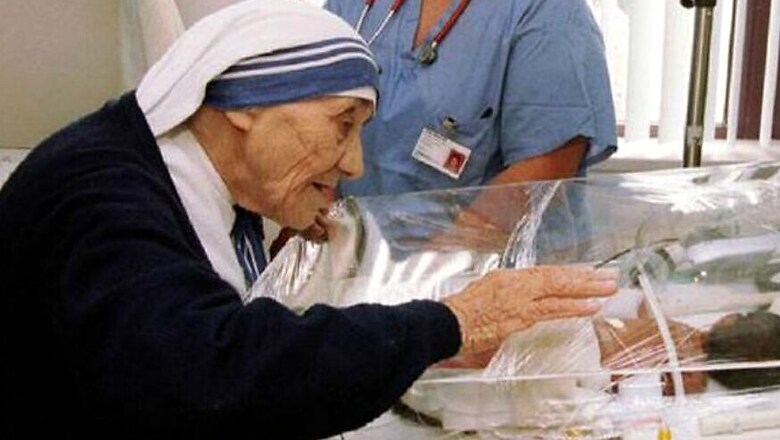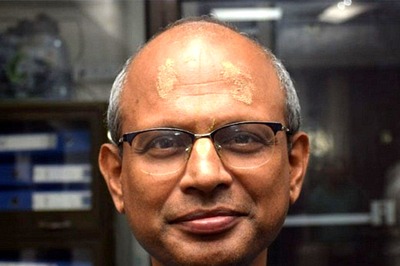
views
Why is Mother Teresa a saint? And why is she the icon for Pope Francis' Holy Year of Mercy? For her admirers, it's obvious.
"Mother is known throughout the whole world for her works of mercy, recognized by Christians and non-Christians alike," said Sister Mary Prema Pierick, the current superior general of Mother Teresa's Missionaries of Charity order.
"Reflecting about Mother and the life of our mother, we see all the works of mercy - corporal and spiritual - put into action."
Her biographer, the Rev. Lush Gjergji, said she founded her life on two pillars: "For God and for the human being."
"She crossed all barriers like castes, races, gender, ethnic, religious, cultural and turned into and remained the mother of the whole civilisation," he said. "In the history of sainthood and that of Christianity, she is the first saint of Hindus, Buddhists, Muslims, non-religious and of course for Christians."
She was not beloved by all, however. She was criticized for the quality of care in her clinics and accused of taking donations from Haitian dictator Jean-Claude Duvalier and disgraced American financier Charles Keating.
Mother Teresa is most often associated with St. John Paul II, who was pope during the heyday of her work.
But Pope Francis seems more a pope in her likeness, eschewing the Apostolic Palace for a simple hotel room, focusing his ministry on the most marginal of society and traveling to the peripheries to find lost souls - just as Mother Teresa did.
In one of his first public audiences after being elected pope in 2013, Francis said he longed for a "church that is poor and for the poor."
"Right from the beginning we said, 'Oh wow, this is a really an 'MC' pope!" said the Rev. Brian Kolodiejchuk, the MC (Missionaries of Charity) priest in charge of the cause.
"He would have been one of our best members - if he hadn't joined the Jesuits."
That Francis is crowning his Jubilee Year of Mercy with Teresa's canonization is evidence that he sees her as the model of the merciful church he envisions.
"There will be other canonisations, but this (is) perhaps the key canonisation in what is the key year, the Year of Mercy," said the Vatican spokesman, Greg Burke.
With more than 100,000 people expected to jam St. Peter's Square tomorrow, including at least 13 heads of state or government, security is an obvious concern given that the Islamic State group has said Rome is their ultimate target as the seat of Christianity.
For months now, police have closed to traffic the main boulevard leading to the Vatican. In anticipation of the throngs expected tomorrow, Rome police have added an extra 1,000 officers, many of them anti-terrorism teams, to a law enforcement force that has already been beefed up by 2,000 for the Jubilee year.
The security plan calls for the area around St. Peter's to be divided into three areas with reinforced controls starting Saturday night and lasting through tomorrow. The airspace over the Vatican and surrounding areas will be closed.

















Comments
0 comment